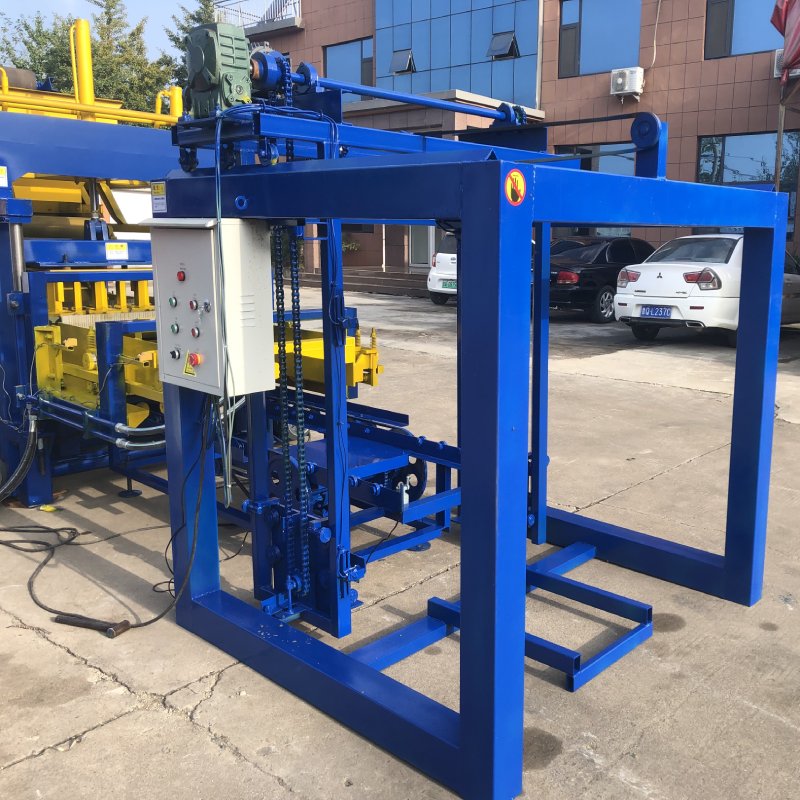
image source: Aiwei block machine
Introduction
The global demand for brick making machines continues to rise, driven by the growing construction industry and the need for sustainable building materials. Chinese brick making machines have gained significant recognition in the international market for their competitive pricing, technological advancements, and customization capabilities. In this article, we will compare Chinese brick making machines with their international counterparts, examining various aspects such as quality, performance, technology, and market presence.
Quality and Performance
Chinese brick making machines have made substantial progress in terms of quality and performance. Manufacturers in China have invested in advanced manufacturing facilities, quality control processes, and materials to ensure the production of high-quality machines. Chinese machines are known for their durability, reliability, and consistent performance.
International counterparts, particularly those from established manufacturing nations such as Germany, Italy, and the United States, also offer machines of high quality. These manufacturers have a long history of producing brick making machines and have built a reputation for their precision engineering, advanced technologies, and meticulous quality control. Machines from these countries often command a higher price due to their brand reputation and precision.
Technological Advancements
Chinese brick making machines have embraced technological advancements, particularly in the areas of automation, robotics, and control systems. Chinese manufacturers have incorporated advanced technologies to enhance productivity, improve efficiency, and optimize energy consumption. Automation and robotics have streamlined production processes, reduced labor requirements, and improved overall performance.
International counterparts are known for their focus on technological innovation. Companies in countries like Germany, Italy, and the Netherlands have introduced cutting-edge technologies, such as computer-controlled systems, artificial intelligence, and sophisticated sensors, into their machines. These technological advancements result in highly precise and efficient brick making processes, leading to superior quality products.
Customization and Flexibility
Chinese brick making machines offer a high level of customization and flexibility, allowing manufacturers to adapt their machines to specific customer requirements. Chinese manufacturers understand the diverse needs of the global market and provide a wide range of options in terms of machine capacity, brick size, shape, and surface finish. This flexibility in customization is highly valued by customers looking for tailored solutions.
International counterparts also provide customization options, but their offerings may be more limited compared to Chinese machines. However, they often excel in producing specialized machines for specific applications or niche markets. These machines may have unique features and capabilities that cater to specific customer needs.
Market Presence and Price Competitiveness
Chinese brick making machines have gained a significant market share in the global market, primarily due to their competitive pricing. The manufacturing capabilities and economies of scale in China allow for the production of machines at lower costs, resulting in more affordable prices compared to machines from other countries. This price competitiveness has enabled Chinese manufacturers to penetrate various markets, especially in developing countries.
International counterparts often command higher prices due to factors such as brand reputation, advanced technology, and superior craftsmanship. However, they have established a strong presence in the global market based on their long-standing expertise and track record. Customers who prioritize quality, precision, and brand recognition may be willing to invest in these machines.
After-Sales Service and Technical Support
Chinese manufacturers have recognized the importance of after-sales service and technical support to ensure customer satisfaction. They have established comprehensive after-sales networks, including service centers and spare parts availability, to address customer needs promptly. Chinese manufacturers also provide technical support, training programs, and assistance in machine installation and operation.
International counterparts have well-established after-sales service networks and are known for their customer-centric approach. They prioritize customer satisfaction by offering extensive technical support, training programs, and on-site assistance. This level of support is often highly valued by customers, especially those looking for long-term partnerships.
Conclusion
Chinese brick making machines have made significant strides in the global market, offering competitive pricing,technological advancements, and customization capabilities. While they may have initially gained recognition for their cost-effectiveness, Chinese machines have demonstrated significant improvements in quality, performance, and technological innovation.
International counterparts, particularly those from established manufacturing nations, continue to lead in terms of precision engineering, advanced technologies, and brand reputation. These machines often come with a higher price tag, but they offer superior quality and specialized features for specific applications.
Both Chinese and international manufacturers recognize the importance of after-sales service and technical support. They have established comprehensive networks to address customer needs and provide assistance throughout the machine’s lifespan.
Ultimately, the choice between Chinese and international brick making machines depends on various factors, including budget, specific requirements, brand preferences, and the availability of local support. Customers must carefully evaluate their needs and consider factors such as quality, customization options, technological advancements, and after-sales service when selecting a brick making machine for their construction projects.